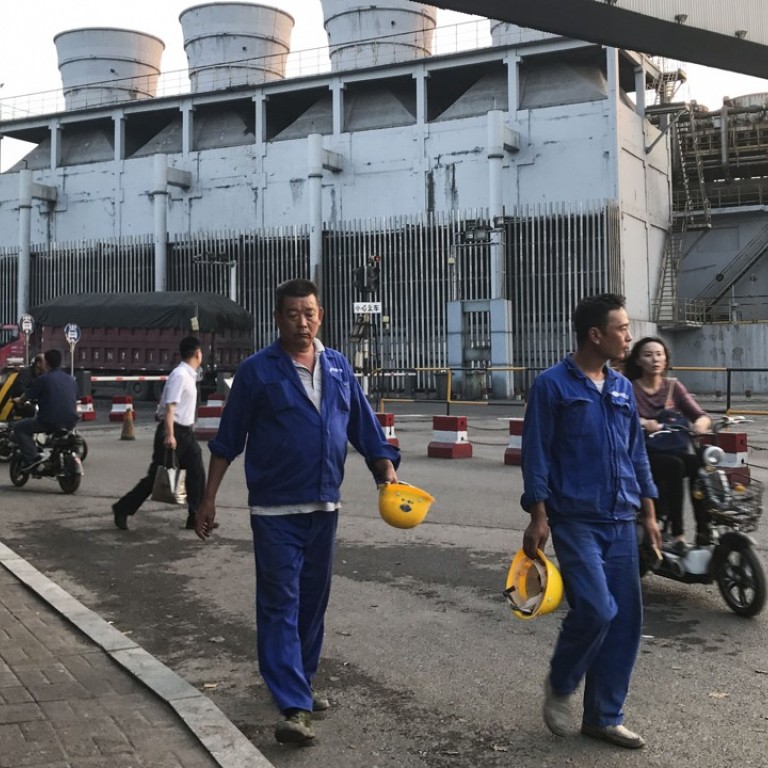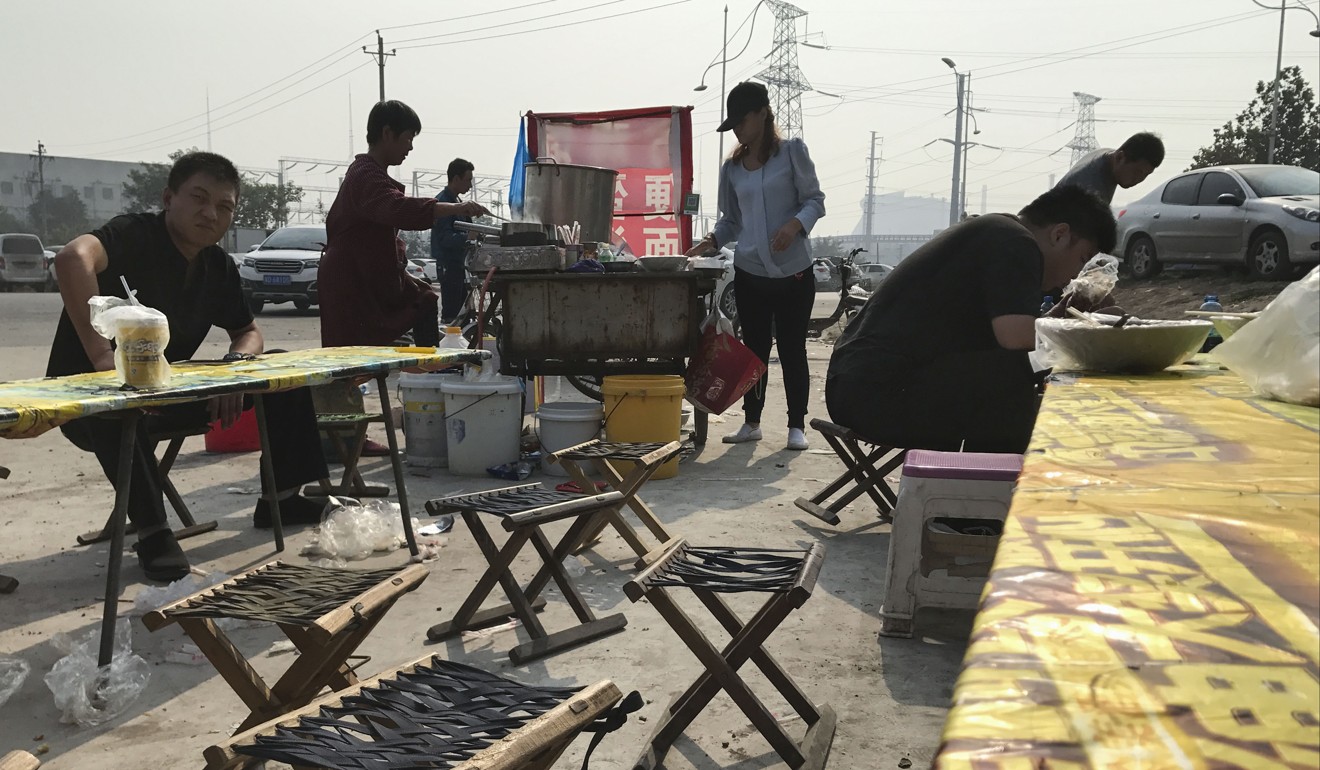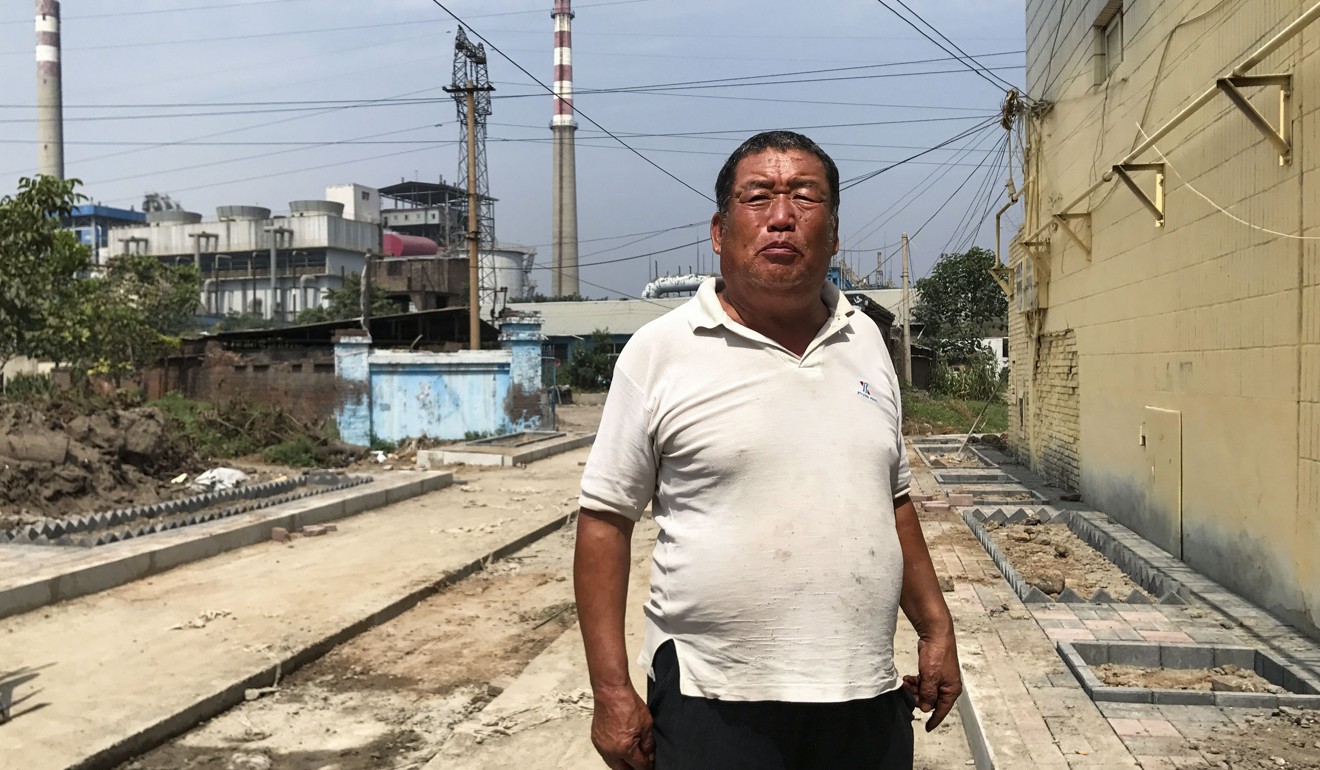
China’s polluting factories run around the clock while villagers are told to cut household emissions
As government steps up effort to cut use of coal, residents of Hebei count the cost
Every day at 4am, Liu Caixia, 37, takes her tiny jianbing cart to the bustling Handan Iron and Steel factory in heavily polluted Hebei province.
Together with other breakfast vendors, she makes the Chinese-style crepe, with flour, egg and spring onions, for steel workers emerging from the night shift.
However, Liu is worried about the future of her three-year-old business after police warned her two weeks ago to stop using her coal stove because of the smoke it produces.
“Look at how much smoke we are making here, and look at Handan Steel,” Liu said, as the factory’s chimneys behind her belched columns of white smoke. “What they produce every day equals what we produce in a year.”
As part of its battle against smog, China has embarked on an ambitious plan to cut pollution generated by households, banning the use of coal-fired stoves and heating units.
But replacing coal with natural gas or electricity has imposed an unbearable burden on many families, especially in rural areas where people rely on cheap coal to endure the freezing winter.

Handan residents living close to the giant steel plant face rising energy bills as they continue to suffer from the coal-burning pollution spewed out by the blast furnaces next door.
Five minutes’ walk from the steel plant, yellow natural gas pipes have been installed around the two-storey houses at Xidatun village, but villager Zhang Hongxia, 45, recalls that the last winter was a cold one for her three children.
With government subsidies, Zhang had natural gas heaters installed in all the rooms of the family home, but some were never turned on because of the high costs.
“During the day, I asked my children to stay in one bedroom and turned on the heater for a few hours,” she said. “When the kids were out, we switched it off immediately.
“We dared not to use it for too long. My children complained about the cold all the time and had to wear down coats at home.”
Even though it tried to economise, the family, with a monthly income of about 4,000 yuan (US$610), still received a winter gas bill of more than 2,000 yuan. In the past, they spent less than 1,500 yuan for enough coal to keep the entire house warm whenever they were home.
Many villagers echoed Zhang’s complaints. Retired chemical factory worker Wang Wenzhang, 68, insisted on using coal last winter because he could not afford the cleaner fuel.
“To be honest, natural gas is more convenient,” Wang said, holding a bowl of rice with onions in his hands. “But I cannot afford it. I don’t have the money.”

He hopes to stick with coal when the temperature plunges again in after about a month, but that will be difficult as the government steps up efforts to curb coal consumption in the countryside.
In a “battle plan” rolled out to combat smog in the Beijing-Tianjin-Hebei region, the Ministry of Environmental Protection pledged to see electric or gas heaters installed in 3 million households in the first 10 months of this year, with the selling and burning of coal to be banned this winter in villages where such work is done.
Environmentalists say reducing household coal burning, which produces large amounts of unfiltered emissions, can significantly improve the region’s air quality.
But the contribution from ordinary people has been partly offset by a rise in factory emissions during a government-led construction boom, according to experts.
“You have reduction of emissions from households,” said Lauri Myllyvirta, a Beijing-based campaigner at environmental group Greenpeace. “But at the same time you have increased these emissions from heavy industry. They have been going in different directions.”

